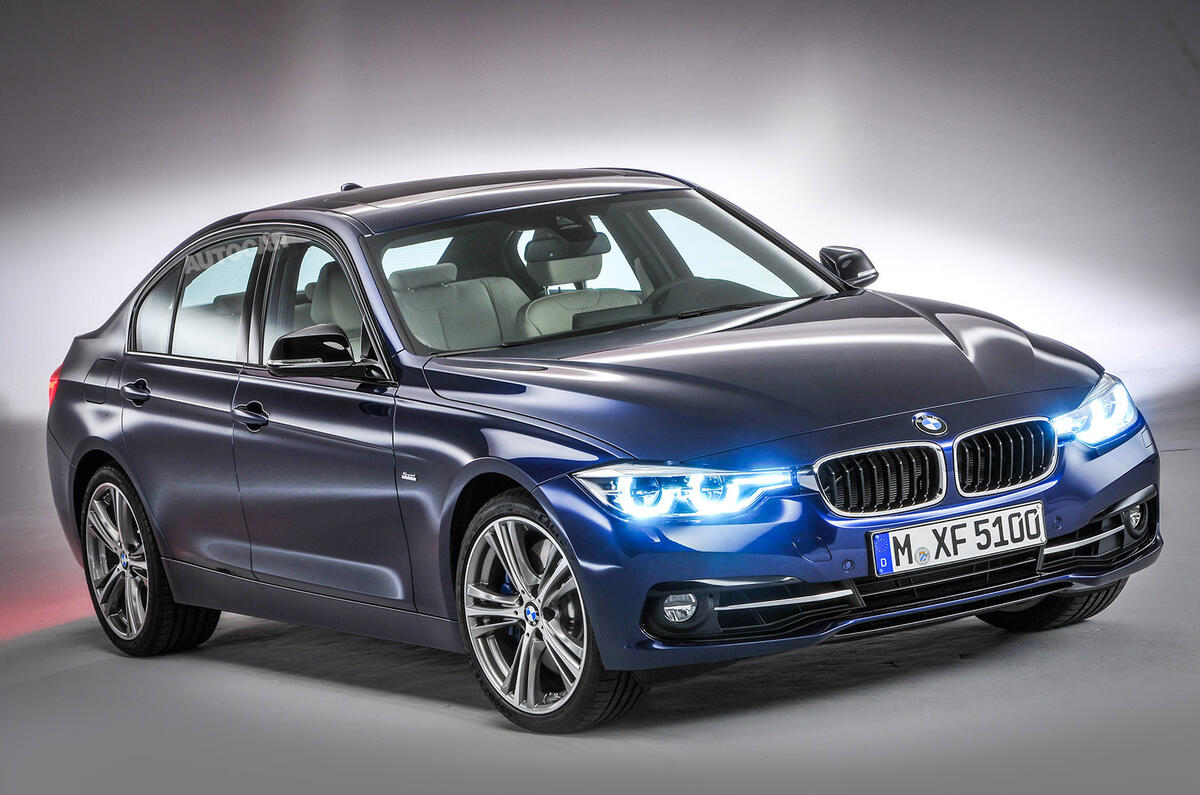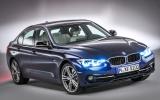The facelifted BMW 3 Series has been revealed. It will be offered with a range of new engines, revised chassis settings and lower CO2 emissions when it goes on sale next month. Prices start at £24,975 for the entry-level 318i SE saloon, while the entry-level estate starts at £26,405.
This 3 Series sits on the same platform as the existing model, although BMW engineers claim to have revised all three of the car’s chassis set-ups – standard, M Sport and adaptive – with retuned dampers and stiffer suspension in a bid to ramp up the agility. The electric power steering system has also been reprogrammed.
See what we make of the current generation BMW 3 Series saloon
The styling modifications are subtle but designed to make the 3 Series appear lower and wider than before. There are new front and rear bumpers, with longer horizontal elements, and revised headlights, including two levels of LED-based lights that position the indicator elements at the top of the lens. The bonnet, doors, wings and roof remain unchanged on both the saloon and Touring.
With the exception of BMW’s N57 3.0-litre six-cylinder turbodiesel in the 330d, all of the engines are new to the 3 Series.
The petrol options now start with a three-cylinder 318i, equipped with the 134bhp 1.5-litre turbocharged engine (called B38) that has already been used in the Mini and the 2 Series Active Tourer. It’s slower than the current entry-level petrol (the 320i) but considerably more efficient. It emits 116g/km of CO2 as an auto or 119g/km as a manual.
The four-cylinder petrol editions both use BMW’s latest modular engine, codenamed B48. It offers 181bhp and 199lb ft in the 320i, and 248bhp and 258lb ft in the 330i, which replaces the 328i in the line-up.
A 3.0-litre six-cylinder petrol 3 Series will continue to be offered. It’s called the 340i and has 322bhp and 332lb ft for a 0-62mph dash of 5.1sec.
All of the four-cylinder diesel options are new and are based around BMW’s latest B47 motor. It offers a modest 114bhp in 316d trim and 148bhp as the 318d, but the mainstays of the range will be the 320d and 320d ED (Efficient Dynamics).
The regular 320d has 188bhp and 295lb ft, for a 0-62mph time of 7.2sec in automatic trim. It emits 106g/km of CO2 regardless of whether it’s with that transmission or the standard six-speed manual.
The 320d ED loses a little power – to 161bhp – but keeps the same torque, so it’s only 0.6sec slower to 62mph. It dips beneath the 100g/km mark in automatic form (99g/km) but emits 102g/km as a manual. This is in contrast to Jaguar’s cleanest Jaguar XE, which can’t crack 100g/km with its auto ’box.




























































































Join the debate
Add your comment
Unexpected
To be honest........?
Massaging the numbers